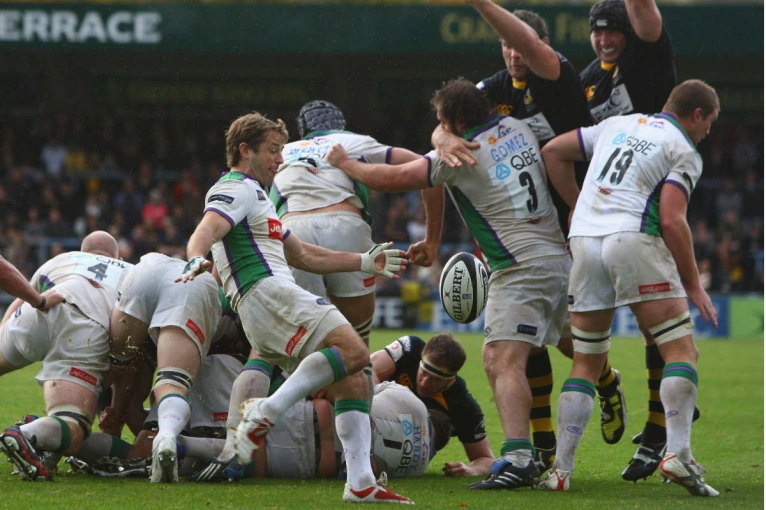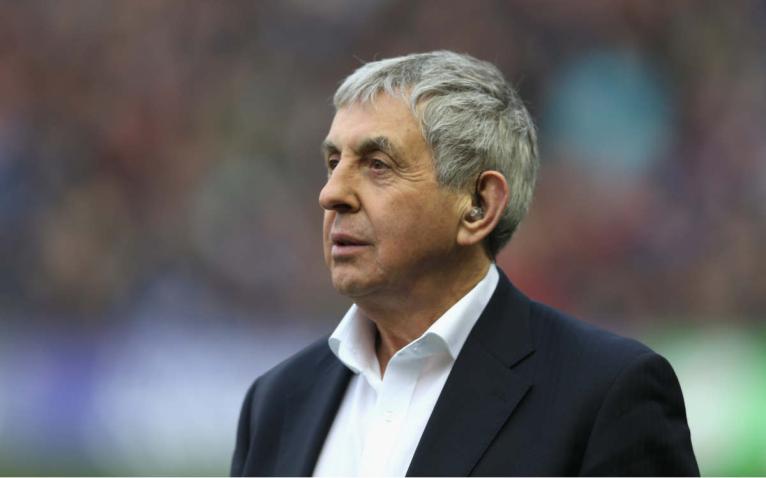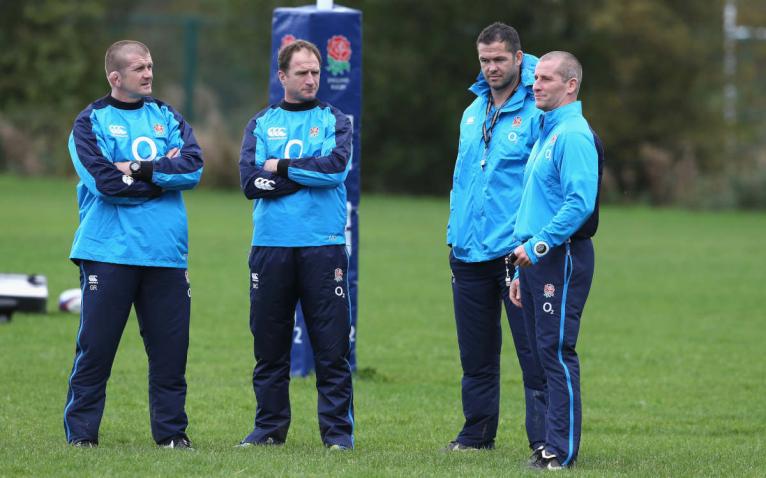Historic York’s most picturesque medieval street goes by the name of Shambles. After their Calcutta Cup unravelling, England’s players would be advised to avoid dawdling under the sign on their visit to the city this week.
The temptation for some smart photographer may be just too much to resist.
Fallow weeks are brief pauses from the maelstrom that is the Six Nations, times to reflect and reboot.
England have plenty to ponder at their northern retreat ahead of their next game against back-to-back Grand Slam hunters Ireland.
The reality is that with a trip to France to come on the final weekend, another season of Six Nations mid-table mediocrity is the expectation.
Head coach Steve Borthwick’s hope must be that a change of scene somehow helps to change the direction of travel.
For a squad still wallowing in their Murrayfield misery, the choice of base is a good one. New and unfamiliar surroundings change the record. They move the world on.

For the area itself, a forgotten rugby union outpost, England’s visit is a welcome shot in the arm.
Despite being the county with the most clubs, Yorkshire has become a gaping void as far as the professional game goes.
Yorkshire has been without a Premiership club since Leeds’s relegation in 2010. They and Rotherham – the only other side from the county to have tasted the top flight – are now down in National League Two North.
Doncaster are the county’s highest-ranked side, Yorkshire’s sole representatives in the Championship.
No region has a divine right to Premiership rugby – especially when the league is shrinking like a sweater on hot wash – but all the same it feels like an opportunity being missed for the English game. This is a county with a bigger population than New Zealand.
The roll call of top players from Yorkshire is seriously impressive. Jason Robinson, Rory Underwood, Mike Tindall, Rob Andrew, Peter Winterbottom, Mike Harrison, John Bentley… the list goes on.
The historic statistic that one in seven of every English-born rugby international has hailed from the Broad Acres underlines the region’s importance to the national team.
But that production line is coughing and spluttering.
There was just one white rose representative in the England match-day squad against Scotland – and at 37 Danny Care won’t be around that much longer.
For ex-Lions coach Ian McGeechan, who played for Yorkshire and still lives in the county, it is not a case of the well running dry.
“The talent is still there in Yorkshire. If you look at the schools, the number of players, the number of clubs, there are still players coming through. They just need a clear structure,” said McGeechan.

“If we can get the changes we need then we would have a really good template for England.”
The issue, he believes, is a blockage in the system.
The last time England headed to Yorkshire for a Six Nations camp in 2013 the squad contained three players who had come through the Leeds Academy in Tom Palmer, Rob Webber and Calum Clark and another proud Yorkshireman in Charlie Hodgson.
The Leeds Academy is no more – a victim of the financial problems which sent the club tumbling down the leagues. In its place has come the Yorkshire Academy, run by the RFU, which provides a grounding but no professional landing pad afterwards. Graduates have to look elsewhere for their rugby after the age of 18.
“The big challenge is what happens between 18 and 23,” said McGeechan.
“The players have to go through somewhere at the top end of the academy and it should be a Yorkshire club.
“To do it properly it has to be through Doncaster. They are head and shoulders ahead of everyone else at the moment.
“If the talent stays, it keeps developing. The Yorkshire identity is kept and the players stay with their friends. At the moment they are having to go outside Yorkshire and they shouldn’t have to.
“There’s no doubt we lose players because some don’t want to do that.”
Last year Ned McCormack, an England under-18s international, chose to sign for Leeds Rhinos when he left the Yorkshire Academy. He had offers from Premiership union clubs but cited the fact that he would have needed to leave his home county as one of his reasons for switching codes.
League’s presence and popularity will always be a restraining factor on union in Yorkshire but not to the point of oblivion.
In the amateur era, Yorkshire was not home to huge clubs but as a collective the county had the strength to contend for the county championship when the competition meant something.

When the game went pro there was a purple patch in the noughties when there were only two seasons with no Yorkshire club in the Premiership. Leeds won the Powergen Cup in 2005 and twice played in the Heineken Cup.
But rugby union was on the map in the county then. With no shop window since, it has been a slide to the margins for the game.
So for Yorkshire rugby nuts, starved of top-level exposure to the likes of Maro Itoje and Manu Tuilagi, England’s arrival brings with it a genuine sense of excitement.
England’s visit will not cast off the game’s invisibility cloak in one go but it will help.
When Borthwick’s men hold their open training session on Friday morning at the LNER Community Stadium the ground will be full to its 8,500 capacity. Young imaginations will be fired, dreams set in train.
With the right stepping stones in place, who knows where they could lead?
Borthwick’s hope must be that the Yorkshire air can provide the same restorative powers for his side as it did for Stuart Lancaster’s England 12 years ago.
Billed as a back-to-basics camp to restore discipline after the dwarf-tossing chaos of the 2011 World Cup campaign, it set a transformational tone. A line in the sand was drawn and a new young squad won four of their five Six Nations games to finish second in the championship.
What Borthwick would give for a repeat this season.
Given the fixtures to come, it might be worth an audience with the archbishop for him while he is in York this week.



Comments
Join free and tell us what you really think!
Sign up for free